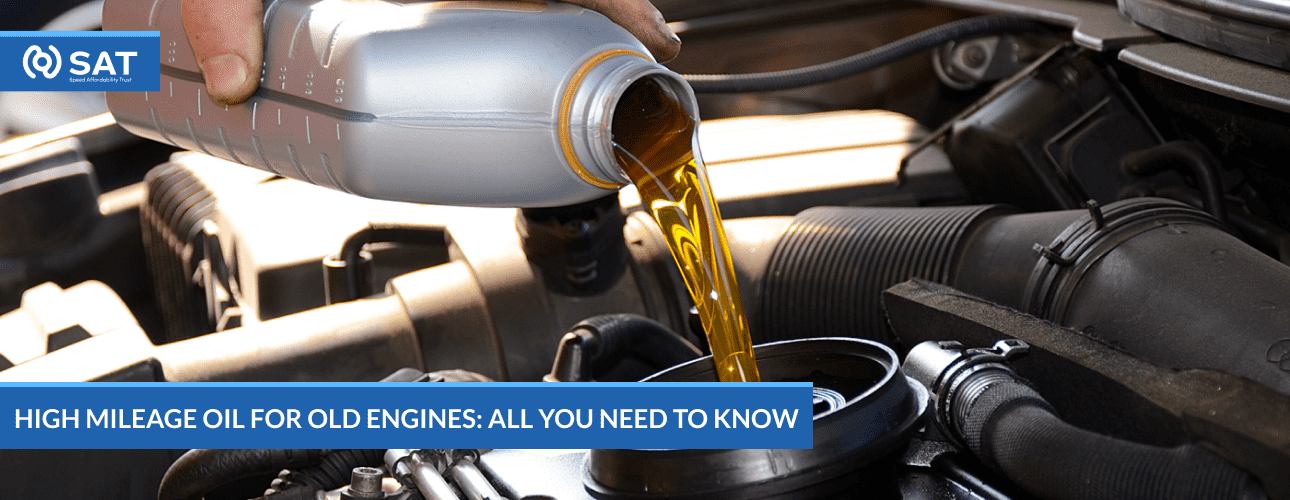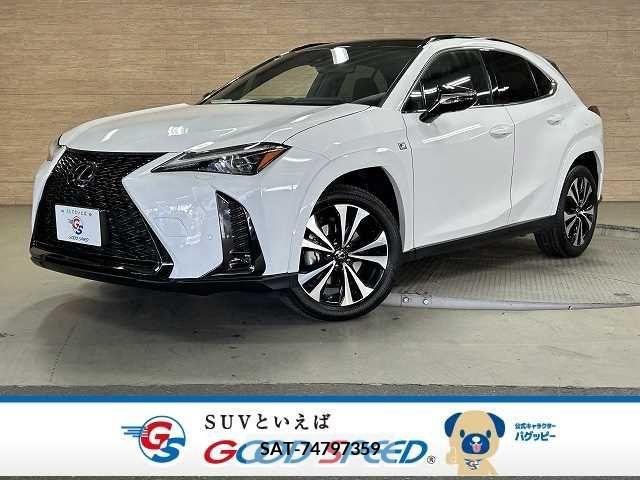Cars being used for longer periods require their engines to be well maintained to ensure efficiency is not compromised. This is where high-mileage oil comes in. High mileage oil is formulated for cars that have been driven over seventy-five thousand miles on the road. It includes special components and supplements that aid in solving problems connected with the maturity of engines, for example, leakage, increased consumption, and wear out. With high mileage oil, you can be sure that your engine will continue to be protected and lubricated even as it wears out.
High-mileage oils can significantly improve a vehicle’s performance, especially those that have already run for several years or more on the road; thus, they should be used when necessary. Over time, seals and gaskets may become stiff and less capable of maintaining their seal through high demands such as pressure and heat. High mileage oil aids in revitalizing these seals to minimize leakages, and to enhance oil pressure. Finally, high mileage oil contains special additives to help remove sludge and deposits that tend to build up in older engines and maintain the peak performance of the engine. In sum, high mileage oil is one product that can be used by car owners who wish to extend the life of their car and give it long-lasting protection.
What Do You Need to Know About High Mileage Oil
High-mileage motor oil is designed for cars that have travelled more than 75,000 miles on the road. Over time, the car, particularly the engine, begins to deteriorate through various common problems like oil leakage, poor performance, and increased oil consumption. The high-mileage oil, which contains specific ingredients that aim to improve the performance of the old vehicle, solves these issues.
The composition of high-mileage oil includes:
Seal Conditioners: These additives also assist in keeping the engine seals fresh and reducing oil leakages.
Anti-Wear Agents: Additional anti-wear agents prevent excessive wear and tear on the engine, increasing its durability.
Detergents and Dispersants: Lubricants also improve general cleaning and reduce the formation of sludge and deposits that hamper the engine’s efficient running.
Viscosity Modifiers: These assist the oil in retaining the ideal thickness it requires at various temperatures so that it can continue providing a thin layer of protection against wear on the contacting surfaces.
Friction Modifiers enhance fuel economy by minimizing the resistance between and among the engine’s perpetually moving components.
Comparison between High Mileage and Regular Oil
While both high mileage oil and regular oil serve to lubricate and protect the engine, there are several key differences between them:
Additives: High-mileage oil contains some components not present in normal oil, such as seal conditioners and improved anti-wear agents. These are essential as they help meet the needs of old engines that require special attention.
Viscosity: High mileage oils may also contain viscosity index improvers that aid in preventing thinning of the oil over time and with temperature fluctuations, which could be beneficial for older car engines.
Detergent Levels: High-mileage oils contain higher detergent dispersant levels due to the engine’s years of exposure to sludge and deposits.
Oil Consumption: The high mileage oil is intended to consume less oil in older-generation automobile engines than regular oil by conditioning the seals and preventing them from leaking, which is not significantly prevented by regular oils.
Furthermore, high-mileage motor oil can effectively address the requirements of old and worn-out vehicles, offering more performance and protection than conventional motor oil.
Advantages of High Mileage Oil
Engine Longevity
High-mileage engine oil is specially made for older car engines that want to last longer. It comprises sophisticated anti-wear additives to offer an additional layer of safeguard against the usual wear and tear characteristic of engines with high mileage. Where high-mileage oil is used, there is less drag and no formation of deposits that should harm the components, allowing them to stay in better shape for a longer duration. This added safeguard can go a long way toward preserving a vehicle and preventing major engine failure beyond the 75,000-mile mark.
Reduced Oil Consumption
Another advantage of high-mileage oil is that it helps to decrease oil leakage and consumption to a great extent. Older engines, for example, tend to have some leaks because the seals and gaskets, with time, are likely to wear out. High mileage oil has seal conditioners that help restore the elasticity to these seals to seal any leakage effectively. Also, the development of high mileage oil ensures that there is slow consumption of the oil as the car is in use, hence less top-off and more oil level.
Improved Performance
High mileage oil can also enhance the efficiency of the engine and operate optimally. Engines naturally become less efficient over time from sludge deposits, the same as with other layers in addition to internal friction. High-mileage oil includes detergents and dispersants that help clean out deposits and stop new sludge from developing. This cleaning action helps keep the engine operating as required by maintaining high standards of cleanliness. The oil’s friction modifiers also reduce internal friction, as this can come at the cost of fuel efficiency and some regained engine power.
Seal Conditioners
High mileage oils contain seal conditioners that are highly vital when it comes to the overall health of an engine. Engine seals and gaskets can degrade over time and often become brittle as well as shrink; therefore, they cause leaks. In high-mileage oil, seal conditioners aid in restoring these aging seals to a more flexible and suitable state to seal gaps. This minimizes the chances of an oil leakage and ensures that the engine has adequate oil pressure for durability and effectiveness.
Additives
High-mileage oils have several features that make them suitable for older engines, as indicated below. These include:
- Anti-Wear Agents: Offer additional safeguards against potential wear and tear on the engine.
- Detergents and Dispersants: Keep the engine clean and avoid letting sludge and deposits accumulate.
- Friction Modifiers: Minimize internal drag, enhancing an automobile’s fuel consumption and power.
- Seal Conditioners: Rehabilitation of aging seals to enhance performance and minimize leakage.
- Antioxidants: Safeguard against loss in oil quality and optimize the usable life of the oil.
These additives complement one another to meet the requirements of these engines and keep them operating at peak efficiency.
High Mileage Oil: Who Should Use It
High mileage oil is most appropriate for cars with high mileage, usually above seventy-five thousand miles. Cars with such a mileage usually have problems associated with aging engines, like engine oil leaks, higher oil consumption, and low power output. These problems occur due to the deterioration of engine seals and gaskets due to wear and tear over some time. High mileage oil comes with additives that are meant to restore these seals, minimize oil consumption, and, at the same time, enhance the performance of the engine.
If you are driving a car that has done many kilometers on the road but the car is not showing signs of faulty next time you do your maintenance, why not grab a high mileage engine oil? Therefore, if your car has over 75,000 miles, it is wise to switch to high-mileage oil to allow the car to continue running without any serious problems.
How To Select the Right High Mileage Oil
Several factors need to be considered when choosing high-mileage oil for your vehicle to enhance its performance and protect the engine.
Key Factors to Consider
Viscosity Rating: According to the vehicle owner’s manual, there is always a recommended viscosity grade for a particular car. High-mileage oils are available in various viscosities, such as 5W—30 or 10W-40. These numbers refer to the thickness of the oil and its compatibility with your engine.
Additive Package: Search for high-mileage oils with seal conditioners, detergents, dispersants, and anti-wear agents. These are important to help restore old seals, clean an engine, and offer further protection against wear.
Brand Reputation: Select popular manufacturers that use high-quality materials for their motor oils. Products from highly reputed brands are likely to deliver on the promise and offer similar quality and durability as the reputations suggest while also likely to be compliant with standards.
Certifications: When choosing a high-mileage oil, you should look into certain things, such as some of the API or ILSAC certifications.
Price vs. Quality: The price factor is also important, but customers are advised to opt for quality and effectiveness while going for high-mileage oil. Purchasing a better-quality oil means better protection and better performance, which ultimately will come with lesser costs on a required new engine.
Importance of Following Manufacturer Recommendations
Another important consideration is the use of the correct grade of oil, the type of oil, and the time interval between each oil change. Choosing or using the incorrect form or viscosity of oil for the engine will harm the engine and, in turn, nullify the warranty. Companies invest a great deal of research to find the right type of oil for their engines regarding the design, the material used and the conditions of the engines to be used.
By following these suggestions, it is possible to achieve Peak Performance while at the same time preserving the durability of your engine and retaining the warranty you were issued.
Comparison of Popular High Mileage Oil Brands
While looking for high-mileage oil, it is important to pay attention to the company, people’s recommendations, licensing, and cost. Some popular high-mileage oil brands include:
- Castrol GTX High Mileage
- Valvoline MaxLife High Mileage
- Mobil 1 High Mileage
- Pennzoil High Mileage
- Royal Purple High Mileage
Assess each brand by the unique characteristics of the products, the performance guarantees made by the manufacturer, and the fit into your vehicle. Consumer feedback and professional advice can also be useful in ascertaining the quality and efficiency of different high mileage oils.
Considering these factors and adhering to the manufacturer’s specifications can help one select the most appropriate high-mileage oil to enhance the performance and efficiency of an aging engine.
Conclusion
In conclusion, high mileage oil is a specialized product designed for the needs of high-mileage vehicles as it offers better protection and improved vehicle performance. Particularly, its additives are designed to increase an engine’s durability, decrease oil leakage, and enhance general efficiency, which makes this product ideal for vehicles with over 75k miles. When it comes to your old car, it is important to think about changing the oil frequently to avoid problems, but instead, use high mileage oil.
Frequently Asked Questions
When do I use high mileage oil?
High-mileage oil is suitable for vehicles that have been on the road for more than 75,000 miles, but it is advisable to talk to the manufacturer first.
Can high-mileage oil help you stop getting oil leaks?
Yet, it comes with seal conditioners to minimize leakage but it cannot eliminate leakage. When leaks become severe, the best thing to do is to consult a mechanic.
Can I switch back to conventional oil?
Yes, but consider the state of your engine. High-mileage engines may require additional protection that regular oil may not offer.
Is high-mileage oil more costly?
Yes, it is slightly expensive because it has a different formula for its production, but the extra shield can help you minimize the amount of money you spend on fixing the house.
How frequently does high-mileage oil need to be changed?
As indicated in the car’s manual, it should be done every 3,000 to 5,000 miles or 3 to 6 months.








